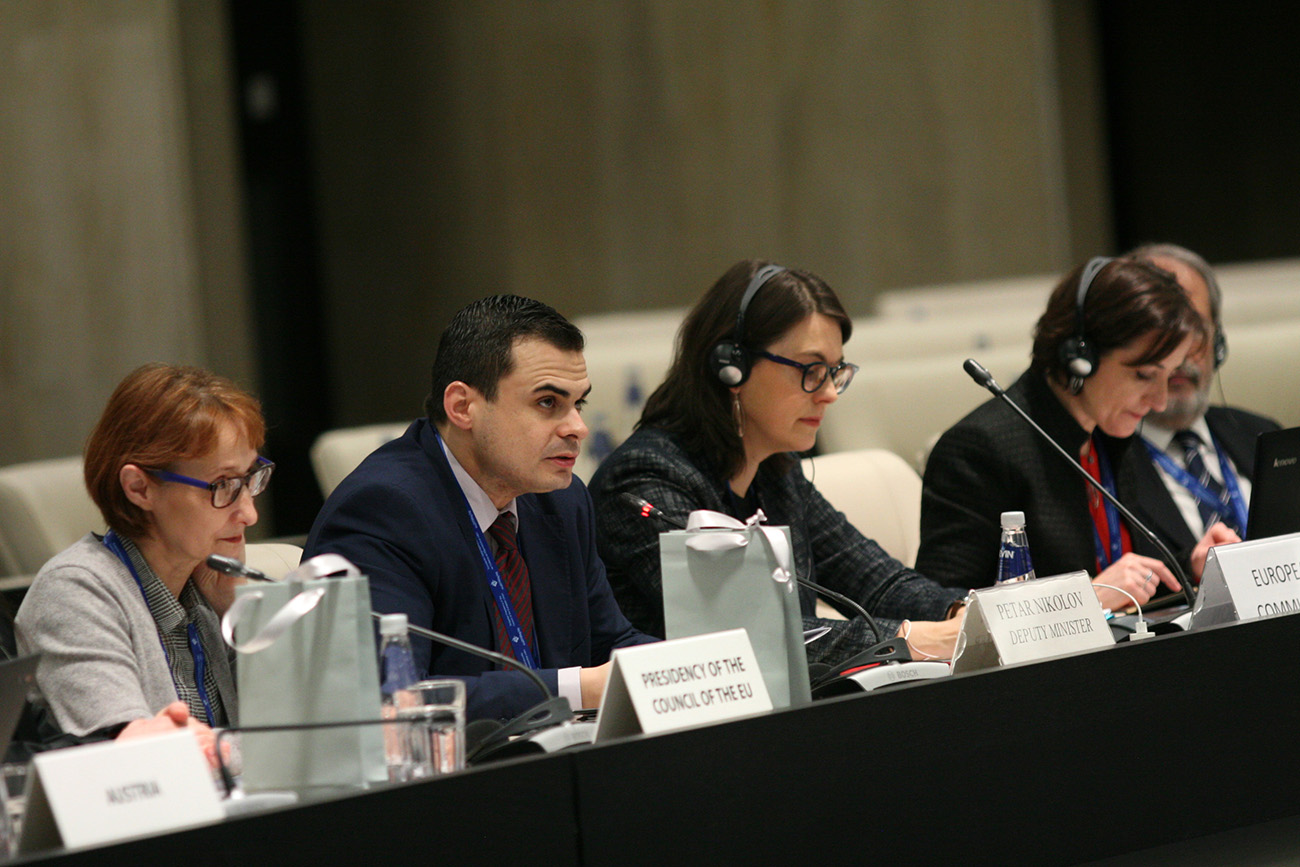A meeting within the framework of the Bulgarian Presidency underlined the benefits of the EU student e-card, which is set to be introduced after 2021. The e-card will ensure full mobility within the European Union. It will provide all the information about the students’ status, and students will no longer have to provide legalisation of references for semesters, passed exams, credits, and other information.
The student e-card and other important topics were discussed during a regular meeting of EU and EEA Directors General for Higher Education on 20-21 February 2018 in Sofia. The event was part of the education section of the calendar of the Bulgarian Presidency of the Council of the EU 2018.
The EU student e-card will provide access at local level to all student services such as libraries, student canteens and halls of residence, travel at reduced price, etc. without the need to present documents proving eligibility for each service to the hosting institution.
The meeting was opened by the Bulgarian Deputy Minister of Education and Science Dr Petar Nikolov and Ms Sophia Eriksson Waterschoot, Director for Youth, Education and Erasmus + in the Directorate-General for Education, Youth, Sport and Culture (DG EAC) in the European Commission.
The EU and EEA Directors General for Higher Education discussed the setting up of networks of European universities and the automatic recognition of diplomas. Another key topic was the culture and quality of higher education from two perspectives – that of the universities and that of the employers.
During the meeting, the mandate of the Working Group on Modernisation of Higher Education for the period 2018-2020 and its working programme were approved. The role of Higher Education institutions in the processes related to regional competitiveness was also considered, with a focus on obstacles and opportunities for driving innovation, including with the support from the European structural and investment funds and various programmes of the European Commission.
Different dimensions in the development of quality assurance policies were discussed. The delegates considered the role of national and regional authorities in encouraging quality improvement through evaluation and accreditation. They pointed to different approaches for control, for widening the aim of quality assurance procedures and for improving the gathering, analysis and use of data.
A separate session was devoted to the Bologna process, during which the cooperation within the European Union in the field of higher education was discussed. The main findings of several countries’ progress for the implementation report on the Bologna Process principles were presented. The member states discussed the way ahead with a focus on cooperation within Europe and beyond.
Press contact:
Kliment Hristov
Ministry of Education and Science/ Director of Public Relations and Protocol
+359 877 566 699
